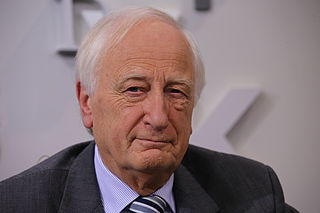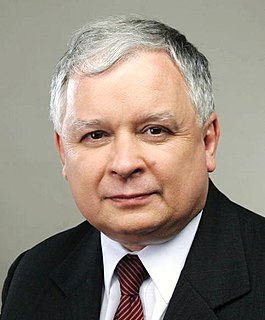A Quote by Milos Zeman
I don't think Russia could start a war by attacking any of the NATO member states.
Related Quotes
Following the end of the Cold War, there was much discussion concerning the point of NATO. In the event, it was reinvented as a means of reducing Russia's reach on its western frontiers and seeking to isolate it. Its former East European client states were admitted to NATO, as were the Baltic states.
It shouldn't surprise any American to know that Russia uses its money and its intelligence services to spread disinformation, use subterfuge and deception and manipulation, to try to divide political opinion within the United States, within any Western European country, or among NATO countries. That's one of the techniques that Russia has used for decades, during the Cold War and during the Putin era.
I think NATO is obsolete. NATO was done at a time you had the Soviet Union, which was obviously larger - much larger than Russia is today. I'm not saying Russia is not a threat. But we have other threats. We have the threat of terrorism. And NATO doesn't discuss terrorism. NATO's not meant for terrorism. NATO doesn't have the right countries in it for terrorism.
In Ukraine, there has never been a consensus behind NATO membership. Even Yulia Tymoshenko was noncommittal when she was still prime minister. Georgia under President Mikhail Saakashvili pursued a rather aggressive stance, which stood in the way of its NATO membership. Given both states' unique relationships with Russia, concerns were justified that NATO membership would trigger Russia's reasonable fears of encirclement.
The controversy over Russian gas deliveries shines a glaring spotlight on the risks involved in this industry. In an energy NATO, EU and NATO member states would guarantee one another assistance in obtaining energy, in any form, but without violence. Of course, we need an additional pipeline system for this purpose.
I don't think anybody knows it was Russia that broke into the DNC. [Hillary Clinton] is saying Russia, Russia, Russia, but I don't - maybe it was. I mean, it could be Russia, but it could also be China. It could also be lots of other people. It also could be somebody sitting on their bed that weighs 400 pounds, OK?
It should come as no surprise that Russia continues its effort to manipulate Western democracies in a way to sow discord and disagreements between our countries in NATO and within the United States or any other Western European country. And it's something the United States obviously must be on guard against.
I welcome the fact that Trump has clearly stated that NATO is not obsolete.And I think, also, that reflects that NATO is adapting. NATO is the most successful alliance in history because we have been able to change, to adapt when the world is changing. And now NATO is stepping up its effort in the global fight against terrorism, and we are responding to a more assertive Russia with an increase of our collective defense, with more presence in the eastern part of the alliance.









































